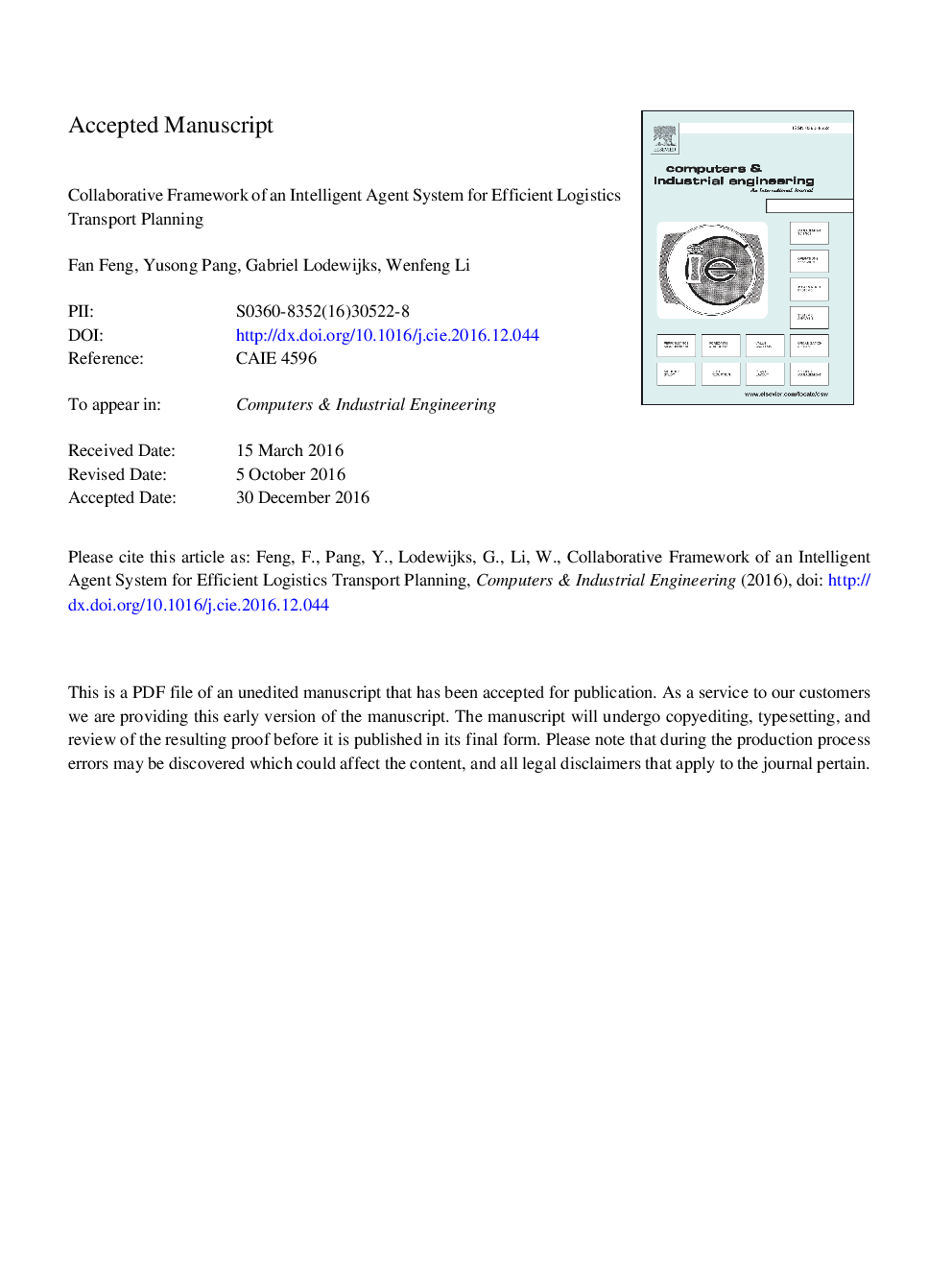ترجمه فارسی عنوان مقاله
چارچوب همکاری یک سیستم عامل هوشمند برای برنامه ریزی حمل و نقل لجستیک کارآمد
عنوان انگلیسی
Collaborative framework of an intelligent agent system for efficient logistics transport planning
| کد مقاله | سال انتشار | تعداد صفحات مقاله انگلیسی |
|---|---|---|
| 148954 | 2017 | 22 صفحه PDF |
منبع

Publisher : Elsevier - Science Direct (الزویر - ساینس دایرکت)
Journal : Computers & Industrial Engineering, Volume 112, October 2017, Pages 551-567

